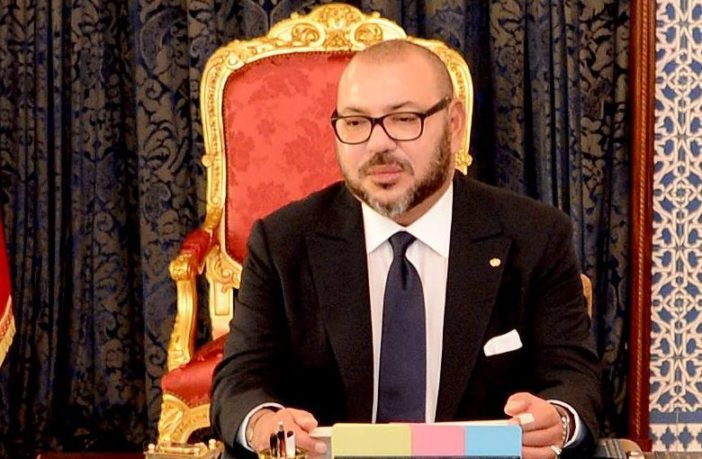Eurasia Review
By Said Temsamani
Sahel region as arguably one of the most vulnerable to climate change with the largest number of people disproportionately affected by global warming. It consists of 10 states and some 300 million people.
It is also one of the most environmentally degraded regions in the world, with temperature increases there projected to be 1.5 times higher than the global average, the UN says.
Morocco’s King Mohammed VI sent a speech to the First Conference of the Climate Commission for the Sahel region, which opened Monday in Niamey, Niger.
Here follows the full text of the Royal speech, which was read out by minister of Foreign Affairs and International Cooperation, Nasser Bourita:
“Praise be to God,
May peace and blessings be upon the Prophet, His Kith and Kin
Your Excellencies the Heads of State and Government,
Your Excellency the Chairperson of the African Union Commission,
Ladies and Gentlemen,
It gives me great pleasure to send this message to the Heads of State and Government who have gathered for this First Conference of the Climate Commission for the Sahel Region.
A link between the North and the South of Africa, the Sahel is confronted today with the tremendous impacts of climate disruption. Accordingly, the major challenge is to tackle the climate issue in an efficient manner while seeking to achieve socioeconomic development objectives and respond to security imperatives.
In this regard, I wish to congratulate most warmly my brother, President Mahamadou Issoufou, for the progress achieved in making the Climate Commission for the region operational.
Niger’s geographic location gives it a natural, central role which enables it to promote the stability, security and development of the Sahel region, and therefore of our entire Continent.
Your Excellencies,
Ladies and Gentlemen,
The situation is quite clear: the climate threats weighing on the Sahel region are known; they affect people’s daily lives and have an adverse impact on socioeconomic development and regional stability.
In this strategic space, we can see, perhaps more than anywhere else, how deeply living conditions are affected by the environment.
Food shortages, dwindling water supplies and desertification caused by global warming will continue to push our youth into exile, depriving our Continent of part of its crucial human resources.
Such threats require us and our partners to invest heavily and also to be fully committed to fulfilling our populations’ aspirations and to achieving the objectives of inclusive development.
For Africans, the fight for climate justice is a fight for access to a better, dignified life and to a bright future.
Indeed, climate justice should not be a mere slogan. It must be a requirement for all of us: a requirement to give our populations access to basic resources. It is in this way that we shall prevent our youth from succumbing to despair, stopping them, at the same time, from falling prey to criminal and terrorist organizations.
Your Excellencies,
Ladies and Gentlemen,
Rallying stakeholders against the devastating effects of climate change cannot stop at national borders. In fact, it should transcend all rifts.
Thus, the Africa Action Summit, held on my initiative in November 2016, in Marrakech, on the sidelines of the COP22, was a strong political signal. We, African Heads of State launched a dynamic process around ambitious, concrete transnational projects led by three Commissions, of which Morocco is a founding partner:
• The Congo Basin Commission, chaired by the Republic of the Congo;
• The Sahel Region Commission, chaired by the Republic of Niger; and
• The Island States Commission, chaired by the Republic of Seychelles.
A first step was taken in Brazzaville last year, in the country of my brother President Sassou-Nguesso, at the 1st Summit of the Congo Basin Climate Commission. The said summit paved the way for stakeholders’ mobilization and launched an innovative and bold approach. These are the bases for future actions that will bring hope and practical solutions for local and regional populations.
It is in this same spirit that we have come together here, in Niamey, to strengthen our actions and enhance their coherence through new proposals. The launch of the Climate Investment Plan for the Sahel region and its Priority Regional Program will hence complete the vital projects underway.
In this regard, I am pleased to announce that the Kingdom of Morocco will pay for the feasibility studies to finalize the Climate Investment Plan.
Moreover, the Commission can count on the Climate Change Competence Center of Morocco (4C Maroc), particularly in terms of capacity building for its members. Set up in 2014, the Center is a national and continental platform of excellence for the development and dissemination of knowledge and best practices on climate change.
Your Excellencies,
Ladies and Gentlemen,
African youth expects us to open up the wide range of possibilities available and to set our Continent on a course of action that creates opportunities. Africa’s future depends on our capacity to imagine new solidarity-based answers, building on a genuine commitment that respects all partners, in the South as well as in the North.
The Sahel region, which includes East, Central and West African countries, can become a model of advanced regional integration in economic, environmental, political and human terms. The Climate Commission for the Sahel Region is one of the levers that will enable it to achieve this objective.
This is where history began, and this is where the region’s future will be decided. Coming generations are, indeed, entitled to a political commitment backed by concerted, solidarity-based action to address climate-related challenges.








